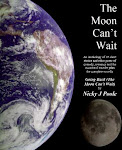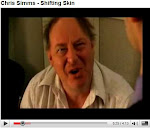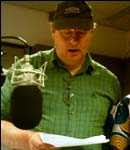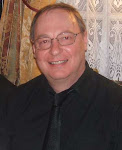What not to do on your holidays - short story with a mystery-thriller tinge
The taxi that dropped me off in the late afternoon sunlight at Malta International Airport at Luqa took just about the last of my Maltese money. Some places would still accept Sterling, after all these years, but with no greater preference than other European currencies. It was all a bit academic, seeing as I had no money in other currencies either, and, in any case I was leaving. The job that I’d flown out to Malta for had fallen through, I was broke, and all I wanted to do was get home. At least I had my return ticket. Resigned to being processed like a piece of cargo, I shuffled up to the departure desk and dropped my ticket on the counter. The flight attendant, in her prim, Air Malta uniform, flicked through it.
"Mr Bishop?" said the slightly accented voice.
"Yes?"
"This ticket is for the six o’clock flight to London Gatwick."
"Yes. That’s right."
"Oh-six-hundred hours. The flight was at 6 a.m. this morning."
I was dumbstruck. I couldn’t believe it. All the years I’d been travelling to various corners of the world, some of them loosely describable as flesh-pots, some of them not even loosely describable, and never once had I confused the 24 hour clock for normal, "What time do you make it?" and glance-at-your-watch time. I understood perfectly the difference between a.m. and p.m. and zero hours through to 23 hundred and fifty-nine hours and I had never got them mixed up. Until now. I had arrived expecting to catch a flight at 6 p.m. that had left twelve hours earlier at 6 a.m.
I could only put it down to exhaustion. Exhaustion and frustration. Frustration at having come all this way for a job, when I so desperately needed money, and the job had fallen through – if it had ever existed, and I had felt utterly at a loose end. Exhaustion, frustration, and bonehead stupidity.
The flight attendant evidently could read my thoughts from the expression on my face. "Don’t worry, Mr Bishop. Providing there is room, we can move your ticket to tomorrow morning. All you need to do is to find a place to stay for the night."
She consulted some kind of computer terminal, and, after some tapping of keys and fiddling with bits of paper, she printed me a fresh ticket. As she handed it to me, she said, with an encouraging smile, "Don’t forget – tomorrow morning."
I tried to smile back, but I felt like I’d just stepped out of a dentist’s with a face full of Novocaine. Where could I spend the night? I could not go back to my hotel in Valletta, the capital, as I had no money left, and the rows of airport bench seats looked like instruments of torture. I had just about enough money for one bottle of Hopleaf and that was it.
"Your name is Bishop, yes?" said a voice by my shoulder. A small, middle-aged man, with receding black greasy hair, was talking to me. "You are English?"
"That’s right."
"Good. I like English very much. I hear what happened. You go to England in the morning."
"Yes."
"You have no place to stay?"
"No."
"It will be my pleasure to offer you a place for the night. If you wish. I like English."
"I’m afraid," I could hardly talk, I was so embarrassed, "I’m afraid I have no money."
"It does not matter. I like English. My name is Camilleri. Come. You stay the night. Perhaps you can do some time something for me."
I wondered what he had in mind.
Mr Camilleri was a perfect host. He drove me in a blue Vauxhall Cavalier that seemed to have dusted embedded into its paintwork. We headed past Valletta to his flat in Sliema, on the northern side of the Grand Harbour opposite the city, where he got me a light meal of salad and fish, mercifully finished off with a bottle of Asbach Uralt brandy. He showed me to a small, clean room that had a bed made up ready and waiting as if he had been expecting me. Next morning, he woke me very early with some incredibly strong coffee, and some toast and marmalade. Then we set off back to the airport.
In some countries they drive on the left, in some on the right. In Malta, they drive in the shade. It was not yet five in the morning and a Mediterranean dawn was just preparing to launch itself into a riot of colour. With some light and little traffic, Mr Camilleri, with typical Maltese zeal, drove like a man possessed, even though there was plenty of time to spare.
He waited while I checked in, this time with no problems. I was so relieved to be going home, yet I had enjoyed my evening with this stranger. I was grateful but didn’t know how to thank him, and I said so.
Again, it was almost as if he had been ready for this moment. "You will be passing through London?"
"Of course?"
"Then I was wondering if you would be so kind as to drop off this postcard?" He pulled a small picture postcard from his inside pocket.
"Don’t you have a stamp?"
"The post!" he turned up his hands in a mild gesture of dismissal. "So slow. A small detour? You can do this for me? There is some money to cover your fares." He also handed me an envelope. Inside was a small collection of £20 notes.
I took the card. It was a picture of Valletta harbour. On the reverse was an address in Belgravia, in slightly shaky capitals. I could not read what was written on the correspondence side of the card, which appeared to be in Greek. It would mean a couple of Tube journeys, nothing more, a lot less than the cash. How could I refuse?
My flight was called and I said goodbye to Mr Camilleri. On the other side of the boarding pass gate were some shops. I bought some overhead projector marker pens. My only souvenir.
At Gatwick, I was diverted, as if by random, by a customs official as I went through Nothing To Declare. He went through my one bag nonchalantly yet thoroughly, as if following a practised routine. He found nothing – there was nothing to find – but he noticed the picture postcard of Valletta harbour. He studied both sides of it with more interest than I felt it warranted. "Forget to post this?" he said.
"I ran out of stamps. Guess I’ll just have to hand it over in person."
He seemed to read the back of the card. Then he lost interest and let me go.
In the toilets, with a damp tissue, I wiped off the English I had written in large print, with the water-soluble overhead marker that I had used to cover the original message. I don’t know why, but I just didn’t like the idea of carrying a message in a language I couldn’t understand. I took the card to the Belgravia address, handed it personally to a man who could have been Mr Camilleri’s younger cousin, and went home.
Mehmet Ertegun – known as "the banker" by those who had dealings with him – was delighted with the picture postcard. It told him just what he wanted to know, and that was the number of a safety deposit box that contained $500,000 in Kruger rands. He used his own method of communicating with his colleague that payment had been received and delivery of the merchandise could go ahead. Duly, thirty-four Kalashnikov AN-94 "Abakan" assault rifles, with a maximum fire rate of 1,800 rounds per minute, and 22,000 rounds of 5.45 calibre ammunition left Piraeus in Greece by ship for Marseilles. They had been moved from Russia, through Chechnya to Albania and on to Greece, and this was probably not the end of their travels.
No banking system in the world had handled any part of the financial transaction. No radio, telephone call, email, or telex had been transmitted that could be picked up at Menwith Hill in Yorkshire. No mail intercept had taken place. The deal might never had existed.
Face-recognition software attached to the surveillance cameras at Malta International Airport had spotted Mr Camilleri, and soon had a host of other names for him. Mr Bishop’s face the software did not know. Still, MI6 put Bishop’s name and description on a watch-list at airports around the world.
The next time Mr Bishop showed up late for a flight on which he was booked, he would have a lot of explaining to do.
THE END.
.jpg)





